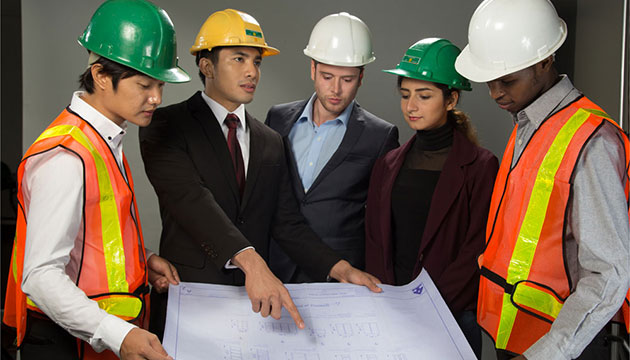If you have engineering education and experience from the Philippines, you can pursue a job that utilizes these skills in Canada, and not have to resort to taking totally unrelated survival jobs - like cleaning floors or working as night clerks - jobs that waste your talent and skills.
It just needs research, time and persistence. You can even start this research process while you are in the Philippines, as there are now many resources on line, available anywhere in the world to give you guidance.
An excellent first place to start is the Engineers Canada Roadmap for Engineering. It provides a plain-speaking overview of how engineering is practiced in Canada, including how engineers are licensed and what is the general process for engineers trained and experienced in other countries. It leads you to more specific resources depending on where you live in Canada. Here is their website: http://newcomers.engineerscanada.ca/.
Engineers are licensed in Canada by professional engineering associations in each province. Applicants need to connect with the professional engineering association where they live or intend to practice. The licensing bodies for engineers in Canada are as follows. Check out their websites for their requirements.
- Canadian Provincial and Territorial Engineering Associations
- Association of Professional Engineers and Geoscientists of British Columbia (APEGBC)
- Association of Professional Engineers and Geoscientists of Alberta (APEGA)
- Association of Professional Engineers and Geoscientists of the Province of Manitoba (APEGM)
- Engineers and Geoscientists New Brunswick
- Association of Professional Engineers and Geoscientists of Saskatchewan (APEGS)
- Engineers Nova Scotia
- Engineers PEI
- Association of Professional Engineers of Yukon (APEY)
- Northwest Territories and Nunavut Association of Professional Engineers and Geoscientists (NAPEG)
- Ordre des ingénieurs du Québec (OIQ)
- Professional Engineers and Geoscientists of Newfoundland and Labrador (PEGNL)
- Professional Engineers Ontario (PEO)
If you live or plan to live in British Columbia, the licensing body for Engineers is the Association of Professional Engineers and Geoscientists of BC or APEGBC.
I spoke with Mark Rigolo, associate director for engineering admissions of APEGBC, regarding what he advises for engineers trained and experienced in the Philippines who want to pursue an engineering license in BC.
"We have a tool that foreign-trained engineers can use to get some guidance on what application route to take. We developed it in conjunction with our colleagues at Applied Science Technologists and Technicians of BC or ASTTTBC,” he said. (For info: https://www.apeg.bc.ca/Become-a-Member/Self-Assessment-Tool).
Rigolo advises that "someone who has an engineering degree from the Philippines and who wants to pursue an engineering license should apply for a P.Eng.License".
"APEGBC will then evaluate your academic qualifications and experience. If these meet our criteria and the applicant passes the Professional Practise Exam, attends Law and Ethics Seminar, and is of good character, they will be granted a license.
"If the academic qualifications do not meet our criteria, the applicant may, among other things, be asked to write examinations. Or if the applicant has more than five years of validated engineering experience, he/she may be asked to attend an interview to determine if examinations are needed.
"All of the engineering experience will need to be validated by Professional Engineers. If the experience does not meet the criteria, the applicant may be assigned (i.e., required) more years of experience," Rigolo said.
Mark Rigolo can be reached at
No doubt the process will take time and effort. Some individuals are not able, or willing to go the full process of obtaining a Professional Engineering License in BC, for various reasons. That doesn't mean they have to settle for any job. These individuals can pursue alternative careers related to engineering.
"Alternative Careers for Engineers" is a resource developed by the Vancouver Public Library that provides career options, such as engineering technologist, engineering technicians, etc, job titles to search for, typical qualifications for each job type, typical wage and current market demand for such jobs. Their website is: http://pwp.vpl.ca/siic/alternative-careers/engineer-alternative-careers/.
There are also careers in trades which some engineers may find to be a good alternative to engineering. Trades pay well in Canada but it may take a long time - sometimes as long, or longer than a PEng License - to get properly certified.
Take a good look at your options and plan to practise your profession in Canada. While the processes, especially the process to get PEng License may be daunting, it is not impossible. People have done it.
Next issue: Canadian Filipino Engineers who have done it.


